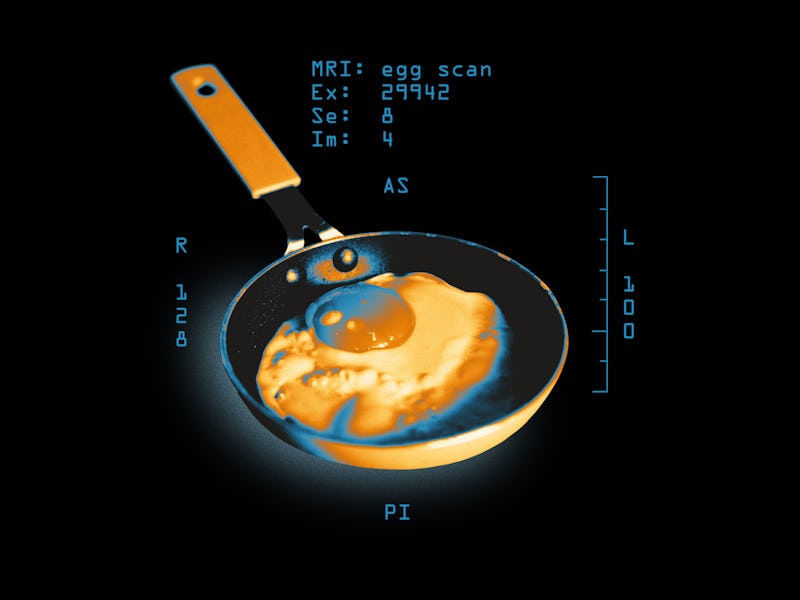Are Eggs Healthy for You? A Chicken Expert Weights In
As egg prices soar, it’s a good moment to re-evaluate the food’s place in our diet.

Like caviar and bubbly, eggs are now for fancy people. A bad case of avian flu has egg production way down and prices way up, as many have remarked. Some have even resorted to building their own private flock on the hypothesis that it’s cheaper to raise chickens than buy supermarket eggs.
While eggs typically join milk, bread, and butter as shopping list staples, this egg inflation creates an appropriate moment to pause and meditate on how good eggs really are for us. Sure, they’re versatile and offer protein, but what else is going on behind that shell?
Ken Anderson, professor of commercial layer and small flock management at North Carolina State University, knows all about what goes into eggs. In fact, according to him, “there’s nothing bad about an egg.”
Are eggs nutritious?
Eggs “contain all of the essential nutrients that humans need, except vitamin C,” Anderson tells Inverse. One large egg also contains about 7 grams of protein, and with a recommended daily dose of about 60 grams daily, that accounts for a healthy portion.
Anderson also says eggs are an efficient energy source — once an egg is cracked, the body can utilize up to 94 percent of it.
This is your brain on egg.
Are eggs high in cholesterol?
This is usually the trickiest question when it comes to declaring whether eggs are healthy. Eggs come out to “cholesterol neutral,” Anderson says. They have twice as much low-density level cholesterol (LDL, the “bad” kind) as high-density level (HDL, “good” cholesterol) but still won’t make much of a dent. For someone who doesn’t have to watch their blood cholesterol levels, eating eggs daily likely won’t change their ratio of LDL to HDL.
Anderson also says that over time, total cholesterol levels in eggs have decreased. All the cholesterol is concentrated in the yolk, and over time breeders have selected to shrink the yolk’s size as they’ve also increased total egg size. Yolks, he says, have gone from accounting for 26 percent of an egg to 24 percent of it. They used to contain 214 milligrams of cholesterol, but now are down to about 186 milligrams.
Cholesterol content also comes from what hens are fed. Anderson says most laying hens eat a corn-soy diet. The presence of oil, like canola or soybean, can up cholesterol levels too. Oil, though, increases omega-3 fatty acids — the “healthy” fat.
How many eggs can I eat a week?
The verdict now is that one egg a day stays within health bounds for those who aren’t watching their cholesterol, but these days who can afford that?!